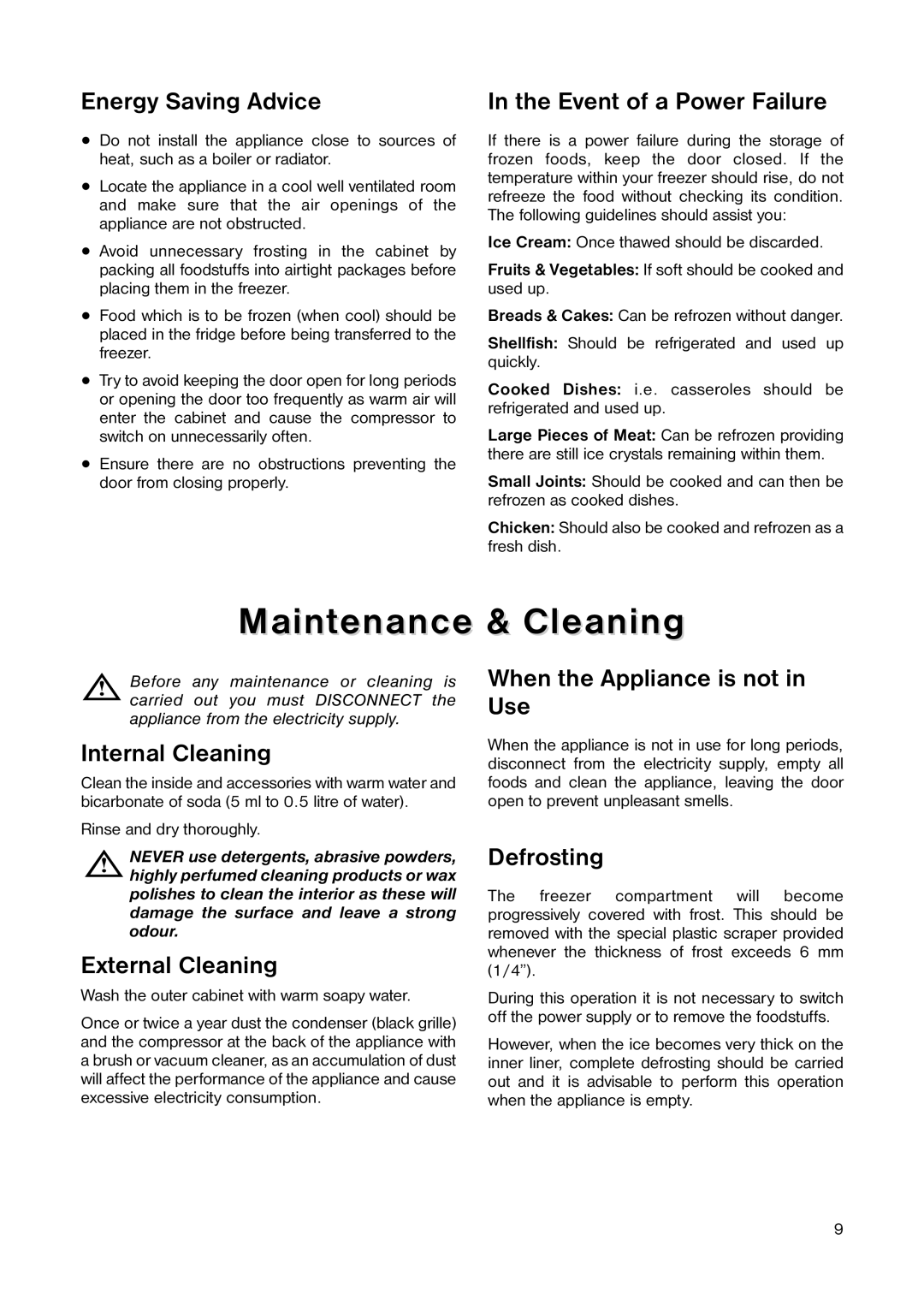Energy Saving Advice
Do not install the appliance close to sources of heat, such as a boiler or radiator.
Locate the appliance in a cool well ventilated room and make sure that the air openings of the appliance are not obstructed.
Avoid unnecessary frosting in the cabinet by packing all foodstuffs into airtight packages before placing them in the freezer.
Food which is to be frozen (when cool) should be placed in the fridge before being transferred to the freezer.
Try to avoid keeping the door open for long periods or opening the door too frequently as warm air will enter the cabinet and cause the compressor to switch on unnecessarily often.
Ensure there are no obstructions preventing the door from closing properly.
In the Event of a Power Failure
If there is a power failure during the storage of frozen foods, keep the door closed. If the temperature within your freezer should rise, do not refreeze the food without checking its condition. The following guidelines should assist you:
Ice Cream: Once thawed should be discarded.
Fruits & Vegetables: If soft should be cooked and used up.
Breads & Cakes: Can be refrozen without danger.
Shellfish: Should be refrigerated and used up quickly.
Cooked Dishes: i.e. casseroles should be refrigerated and used up.
Large Pieces of Meat: Can be refrozen providing there are still ice crystals remaining within them.
Small Joints: Should be cooked and can then be refrozen as cooked dishes.
Chicken: Should also be cooked and refrozen as a fresh dish.
Maintenance & Cleaning
Before any maintenance or cleaning is carried out you must DISCONNECT the appliance from the electricity supply.
Internal Cleaning
Clean the inside and accessories with warm water and bicarbonate of soda (5 ml to 0.5 litre of water).
Rinse and dry thoroughly.
NEVER use detergents, abrasive powders, highly perfumed cleaning products or wax polishes to clean the interior as these will damage the surface and leave a strong odour.
External Cleaning
Wash the outer cabinet with warm soapy water.
Once or twice a year dust the condenser (black grille) and the compressor at the back of the appliance with a brush or vacuum cleaner, as an accumulation of dust will affect the performance of the appliance and cause excessive electricity consumption.
When the Appliance is not in Use
When the appliance is not in use for long periods, disconnect from the electricity supply, empty all foods and clean the appliance, leaving the door open to prevent unpleasant smells.
Defrosting
The freezer compartment will become progressively covered with frost. This should be removed with the special plastic scraper provided whenever the thickness of frost exceeds 6 mm (1/4”).
During this operation it is not necessary to switch off the power supply or to remove the foodstuffs.
However, when the ice becomes very thick on the inner liner, complete defrosting should be carried out and it is advisable to perform this operation when the appliance is empty.
9
